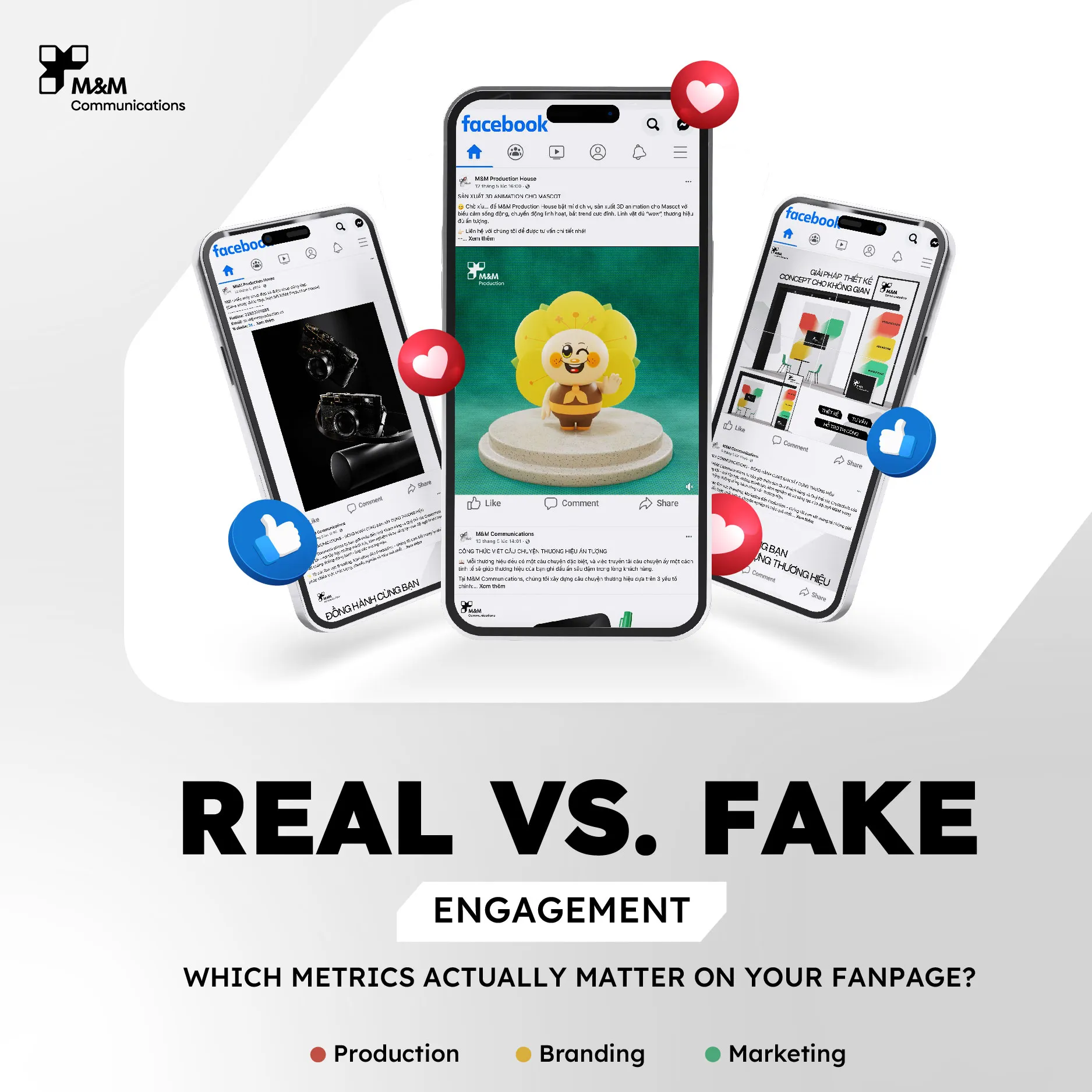
Creating a distinctive and profound image in customers' minds is always essential for businesses, especially in today's market context.
To achieve this, businesses are increasingly focusing on the concept of Branding and emphasizing its development and enhancement.
What is Branding?
Originating from the word "Brand," which means "Brand," Branding is the concept used to describe the process of building and establishing a business's brand. Specifically, Branding helps a business create an image, reputation, and awareness of its product or service in customers' minds. It encompasses all the elements that make customers associate with the business's product or service, such as brand name, logo, slogan, experience, and value proposition.

This is a meticulous and deep process that shapes how people perceive your brand. Branding helps create consistency and distinct recognition for products, services, and brands in customers' minds.
The Power of Branding for Businesses
To understand why businesses are driven to invest in and develop Branding, you need to grasp its power and impact on businesses.
Creating a Unique Impression
In a crowded classroom, to be remembered by teachers after just a few sessions requires students to create a distinct impression compared to the rest (position, achievements, outstanding appearance, etc.). Similarly, in a market full of businesses in the same industry, making customers remember a particular name demands that a business builds a reputation, a distinctive brand image. Brand image is created from Branding elements such as slogans, logos, brand colors, ... these elements collectively referred to as Brand Identity.

Increasing Customer Loyalty
Branding plays a crucial role in creating consistency in the image, message, and voice for a business's customers.
As a result, it contributes to creating coherence in user experience. Thanks to this consistency, businesses can increase customer loyalty based on common consumer buying behavior - habitual buying behavior. Customers who have previously purchased products or services from the business and are familiar with brand identity elements tend to return for continued shopping.
Therefore, businesses can consider increasing customer loyalty as a significant success.

Attracting New Customers
Branding not only helps businesses increase loyalty among existing customers but also attracts new ones. Specifically, branding enables businesses to capitalize on existing potential customers. These customers may have a need for the business's products but are undecided. However, if the business builds an attractive image and message, demonstrating consistency and credibility through branding elements, they are more likely to remember the brand compared to competitors. This makes them more likely to choose the business's products and encourages their purchasing decisions.
Effective Competition
Branding helps businesses establish a specific image through elements such as logos, brand colors, and identity systems. These elements not only differentiate the business from others in the same industry but also help customers easily recognize the products, services, and brand of the business. This simultaneously enhances the business's competitive ability in the market, contributing to building a strong brand image for effective competition and increased market share compared to competitors.
Three Factors Making Branding Increasingly Important
Despite only recently being recognized and having a trend towards development since the industrial revolution, branding with its powerful impact on various aspects of businesses is becoming increasingly important in their construction and development processes.
Fierce Competition
Every day, thousands of businesses are fiercely competing to attract customers' attention. In that context, developing a strong brand through branding is not only an advantage but also a decisive factor for the existence and success of the business. Branding helps your business stand out in the crowd, creating a unique impression and retaining customers.
Customer Awareness
Customers are becoming increasingly conscious and intelligent. They are not only concerned about the quality of products and services but also evaluate and choose based on the brand's position and image.
A typical example is the case of Cocoon, a vegan cosmetics brand from Vietnam. Despite being established in 2013, it was not until 2022 that the brand truly gained reputation, became widely known, and gained its own market share. Capturing the trend of vegan cosmetics consumption, Cocoon built and promoted a consistent vegan brand image across social media platforms - from Facebook, Google, Instagram, TikTok, etc. By emphasizing branding with the message "100% Vegan Commitment from Natural Vietnam, No Animal Ingredients, No Animal Testing", Cocoon has established a unique position in the cosmetics industry in Vietnam.
Through the case of the Cocoon brand, it can be seen that customers want to support brands with clear consciousness and vision, especially those that are nature-friendly and environmentally conscious. Therefore, building a brand with values, ethics, and vision through elements in branding is extremely important to attract customers.
The Development of Media
The development of media has created favorable conditions for transmitting brand information, making it easy to spread and reach target audiences quickly. Social media has also created an environment where people can freely express their views and opinions about brands, while helping these perspectives spread widely. Therefore, building and managing brand image has become more important than ever.
If a business has prominent information about their products, services, or brand and can turn this information into a phenomenon on social platforms, creating a strong viral effect, this will greatly support the business in implementing an effective branding strategy.

On the contrary, any shortcomings or issues related to a business's credibility, especially when they spread rapidly on social media, if not addressed promptly or managed with an intelligent strategy, can have serious consequences for the business's image and reputation.
When Branding is not just for businesses
At its core, Branding is the process of building a business's image through elements that remind customers of their products, services, and brand. However, in today's era, the concept of Branding has extended beyond the scope of businesses and brands.
Personal Branding
In an era where individualism is highly valued and emphasized, the development of Personal Branding has also garnered attention. If business Branding helps businesses establish a credible image in the eyes of customers, thereby increasing customer loyalty and attracting new customers, Personal Branding helps individuals differentiate themselves from others. This helps enhance personal value and achieve short-term or long-term goals in education, relationships, career advancement, and various other aspects of life.

Community Projects
Branding serves not only as a tool to support businesses but also plays a crucial role in promoting the development of community projects and nonprofits.
Specifically, nonprofit organizations and community projects often struggle to attract attention and support from the community. However, by building a distinct brand for these projects through elements like logos, brand identity, stationery, etc., they can make a strong impression on viewers.
Through the project's logo, message, and unique color scheme, people tend to become interested and eager to learn more deeply about it. These elements also contribute to influencing and enhancing their awareness of the message that the project aims to convey to the community.
Branding plays a crucial role in shaping the image and conveying the message of community projects and nonprofits. With its own logo and unique brand identity, "Mysterious Volcanic Island Ly Son" has established an impressive image as a beautiful island of Vietnam and a community project aimed at promoting noble values.
>>> Exploring the impressive branding of the "Mysterious Volcanic Island Ly Son" project
It can be said that branding helps create a distinctive mark and clearly defines the project's goals, values, and mission. This attracts the interest of supporters, volunteers, and investors. When a community project is branded, it effectively communicates its message, connects with people, and stimulates necessary support for projects with good intentions. This not only raises awareness about these projects but also spreads positive messages and contributes to sustainable community development.
Conclusion
Branding is increasingly important for businesses of all sizes and industries. It builds value, attracts customers, ensures effective competition, and shapes the reputation of businesses in an increasingly competitive market. Beyond supporting businesses, branding also helps community and nonprofit projects establish their own image, gaining broader attention and recognition.








